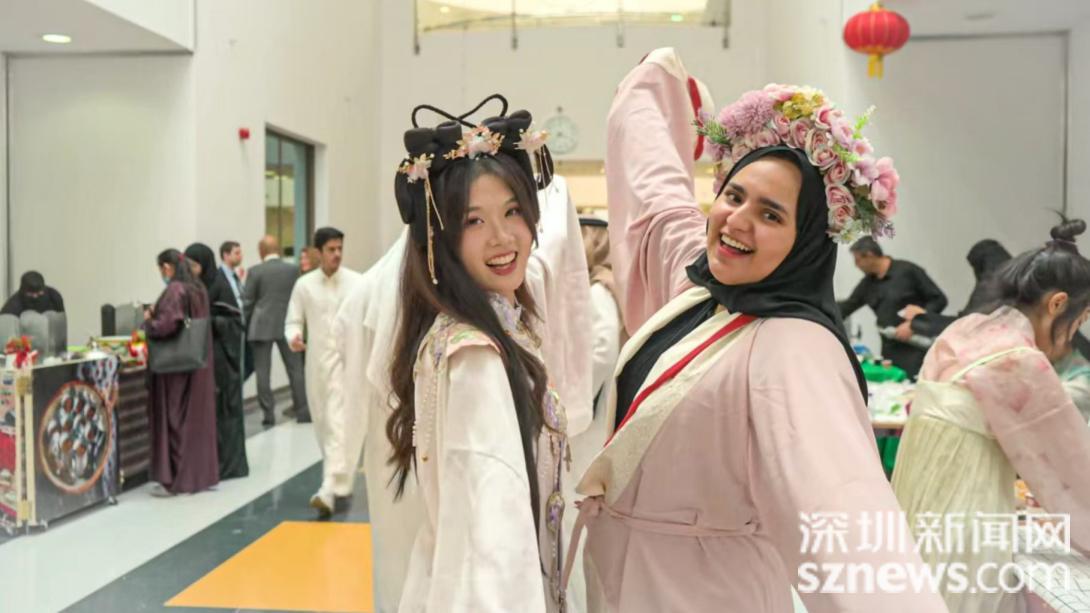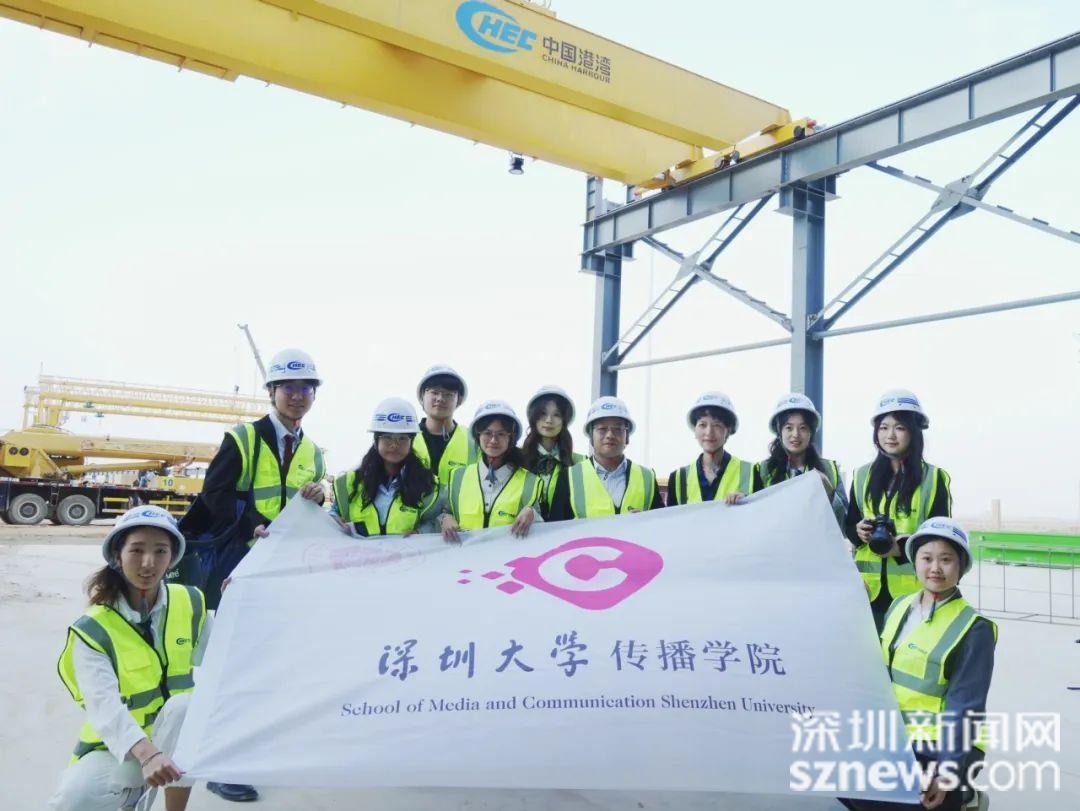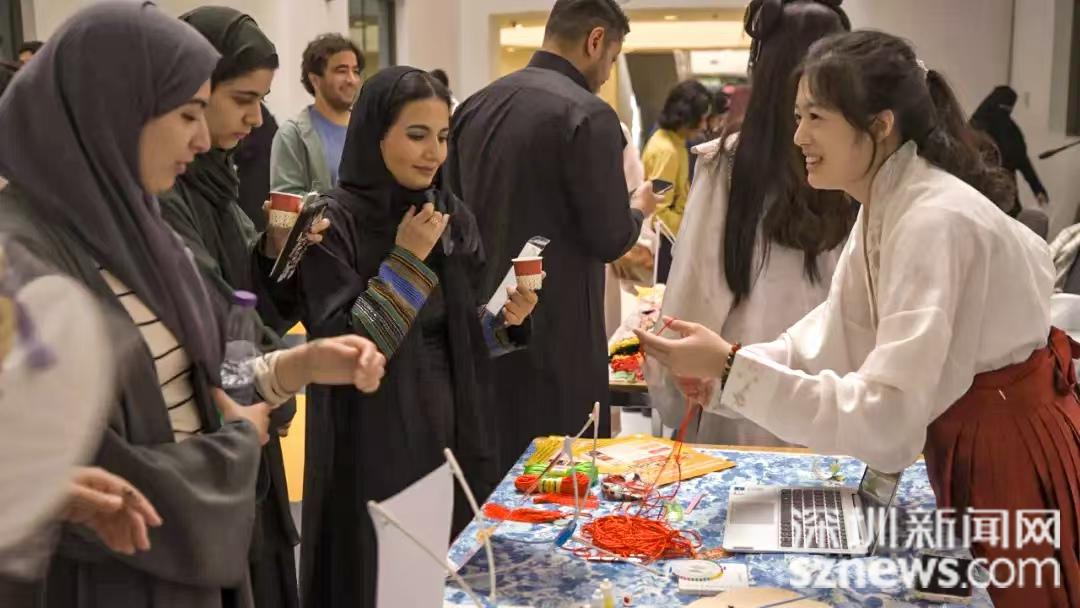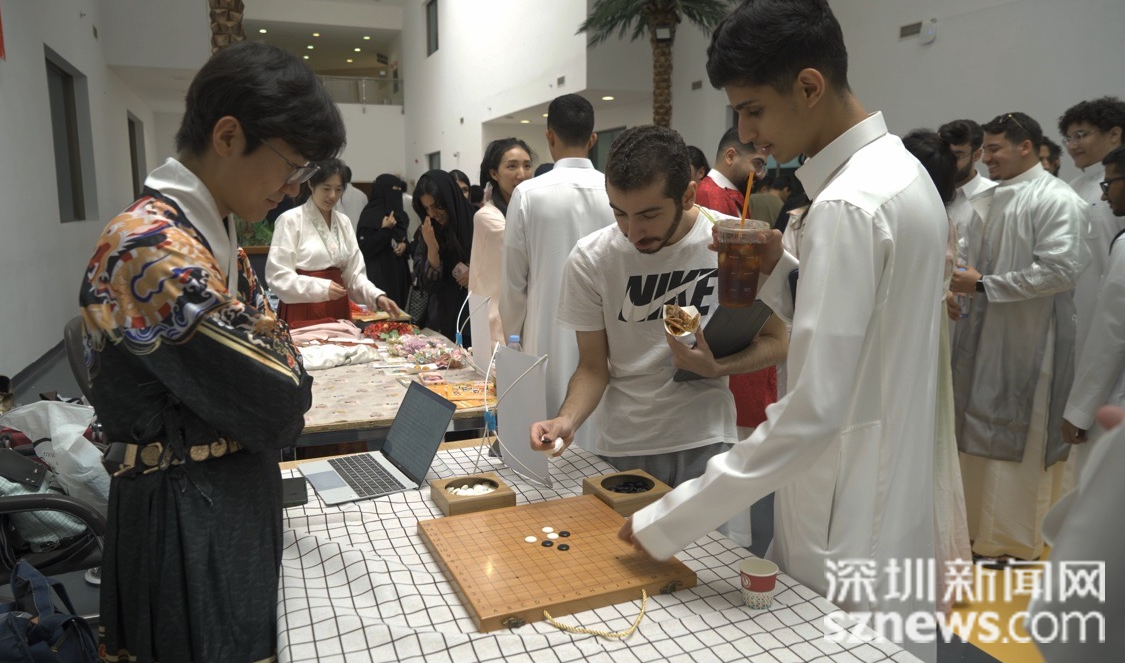Recently, at the invitation of Prince Sultan University in Saudi Arabia, a delegation of 11 faculty and students from the School of Media and Communication at Shenzhen University embarked on a 9-day visit to Saudi Arabia. The delegation visited Riyadh and Jeddah, gaining firsthand experience in international communication and exploring the integration of Chinese and Saudi cultures. Through a series of diverse cultural and academic exchanges, students and faculty from both universities shared knowledge and insights, promoting mutual understanding and cultural exchange.

Rising interest in Chinese language and "Made in China"
Founded in 1998, Prince Sultan University is Saudi Arabia's first private, non-profit university, located in the capital city of Riyadh. The university's Confucius Institute, established in partnership with Shenzhen University, is the first of its kind abroad for Shenzhen University. The institute officially opened and began operations on June 4, 2023. The institute serves the local community by offering Chinese language courses, cultural activities, and skill training programs for people of all ages, from schoolchildren to adults.
In response to the growing demand for Chinese language education, Saudi Arabia's Ministry of Education has launched an initiative to make Chinese a core part of the national curriculum. Chinese has been designated as the second official foreign language for all middle and high school students, with specific class hours dedicated to teaching the language every Sunday and Monday.
Today, Chinese signage has begun to appear in many public and commercial spaces across Saudi Arabia, reflecting the increasing presence of Chinese culture in the country.
A two-way exchange: youth from China and Saudi Arabia learning from each other

Earlier this year in April, the Confucius Institute at Prince Sultan University organized the 2024 "Chinese Bridge" Spring Camp for Saudi youth, which was enthusiastically received by Saudi students. During the camp, the students visited Shenzhen University, where they participated in Chinese language classes and immersed themselves in Chinese traditions through activities such as calligraphy, tea ceremonies, and exhibitions of intangible cultural heritage.

Six months later, members of theInternational CommunicationPractice Group from the School of Media and Communication at Shenzhen University, dressed in traditional Chinese attire, staged performances and set up booths filled with Chinese cultural elements at Prince Sultan University. Saudi students engaged in activities such as tea tasting, Chinese chess, calligraphy, and woodblock printing, while also sharing their own cultural traditions, including Saudi music and dance, Arabic coffee-making, calligraphy, and a collection of historical coins. The vibrant exchanges between students from both countries sparked meaningful dialogue and deepened their cultural understanding.
Li Hui, a professor at Shenzhen University's School of Media and Communication, commented during the visit: "The Confucius Institute, along with our existing cooperation, has laid a strong foundation for communication between our two universities. We hope to build on this momentum and further expand our collaboration, particularly in the fields of social sciences such as journalism and communication. We also look forward to further exchanges, such as sending students and scholars abroad, and jointly organizing academic conferences."

Li Yanni, a student in the 2022 cohort of Shenzhen University's School of Media and Communication, shared her perspective: "International communication occurs not only between countries but also between individuals. By engaging in hands-on experiences, beyond just theoretical exchanges, we can break down stereotypes and foster a more accurate understanding between people. This is one of the most effective ways to promote international communication."
Although the exchange activities have concluded, the friendships formed between the students and faculty from both universities continue to grow. Even after returning home, they stay in touch through social media. The practice group has shared their experiences in Saudi Arabia with their peers back in China, while also helping to further promote Chinese culture to young people in Saudi Arabia.

